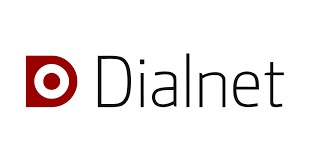Publication ethics policies
3. PUBLICATION ETHICS POLICIES
AYPATE is committed to maintaining the highest ethical standards in its publications. To this end, a set of rigorous policies has been established that address best practices in the publishing field and clearly define what constitutes inappropriate conduct in the scientific, academic, and publishing spheres.
We strongly urge all authors to familiarize themselves with these guidelines before submitting any work. This prior review is crucial to ensure that your work meets the established criteria and preserves the academic integrity that characterizes AYPATE publications.
It is important to note that, in the event of any irregularities or unethical behavior being detected, our publishing house reserves the right to take corrective action. These measures may range from rejection of the manuscript to retraction of already published articles. In situations that warrant it, we may also initiate a follow-up process with the author's institution.
3.1. Policies for inclusive writing
AYPATE is committed to defending and promoting an environment that upholds diversity, equity, and inclusion in all its aspects. Our commitment is to ensure that every individual has the same opportunities to be part of the scientific community.
Our mission at AYPATE is to make science open, and that means it must be accessible to everyone.
AYPATE is an inclusive journal, so we request that all submissions comply with our inclusion policy. When preparing your manuscript, we ask that you take a conscious approach to personal biases and make a deliberate effort to limit their influence. Authors should remove any indication or suggestion of superiority or inferiority of one person over another based on age, gender, race, ethnicity, culture, sexual orientation, disability, religion, or socioeconomic class.
In addition, when writing your paper, try to avoid:
Language that could be considered insulting, profane, or derogatory.
Descriptors that identify personal attributes such as age, gender, race, ethnicity, culture, sexual orientation, disability, or health conditions, unless they are absolutely relevant to the discussion.
Any form of language that implies that a particular culture or group is the standard or default norm.
3.2. Originality of content and duplicate submissions
AYPATE is firmly committed to originality in its publications. Works submitted to our journal must be unpublished and not currently under review by other publishing platforms, either in whole or in part. We will only consider manuscripts previously rejected by other publishers, provided that such rejection is final at the time of submission to AYPATE. The practice of simultaneously submitting an article to multiple journals is considered academic misconduct, classified as duplicate submission.
3.3. Data integrity
AYPATE categorically opposes any form of dishonest manipulation of information. This includes both the invention of data or images (fabrication) and their deliberate alteration or misleading presentation (falsification). AYPATE strongly rejects manuscripts produced by commercial entities, known as “article mills” or “paper mills,” which produce works on behalf of researchers listed as authors. Such practices contravene our editorial policies, and manuscripts suspected of originating from such sources will be proactively discarded before the peer review process begins.
3.4. Redundant publication
AYPATE maintains a firm stance against redundant publication, a phenomenon that occurs when the same research characterized by identical or very similar ideas, data, results, or conclusions is disseminated multiple times, either by the same team of authors or by partially overlapping groups. This practice ranges from adding marginal data to a previously published work to disseminating the same content in different journals, a tactic colloquially known as “salami slicing.” We consider these practices to be serious ethical violations and, therefore, manuscripts in which this type of redundancy is detected will be automatically excluded from consideration for publication in AYPATE.
Our editorial process includes rigorous scrutiny of all submissions to identify potential redundancies. In the interest of transparency and compliance with our policies, we urge authors to disclose any related publications and to properly cite all relevant material. We strongly recommend that the introduction of the manuscript clearly and concisely explain how the proposed work contributes significantly to the field.















